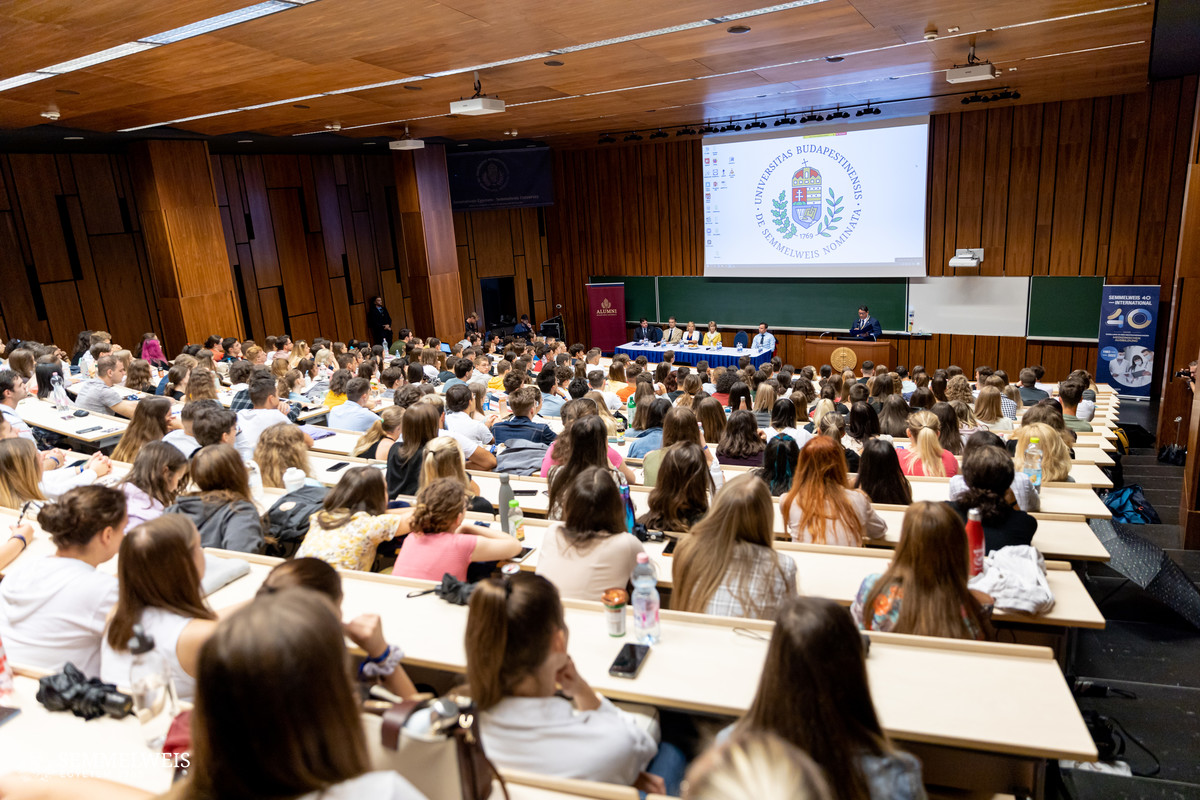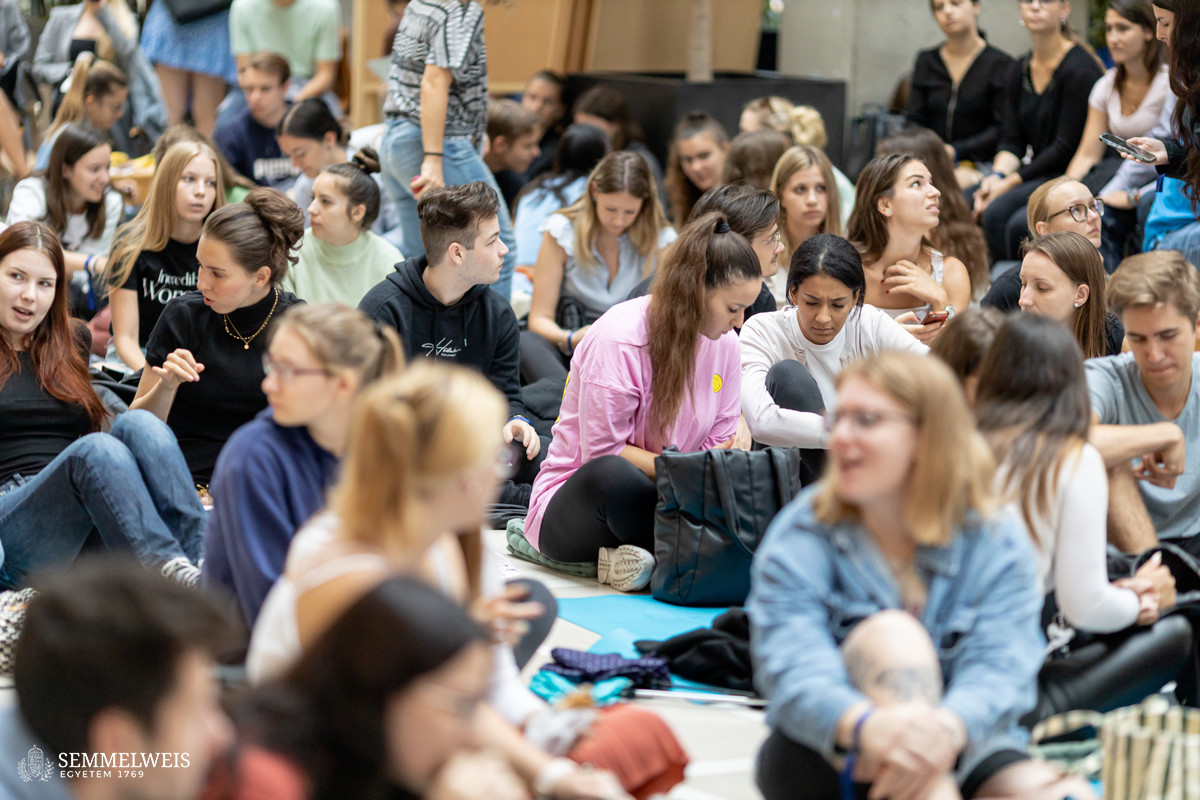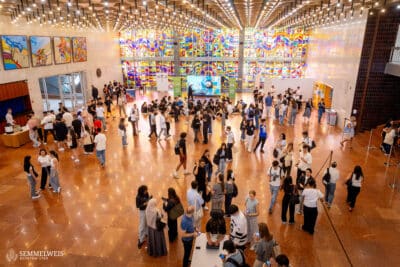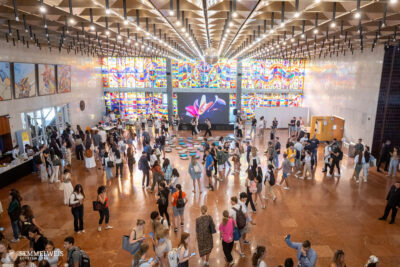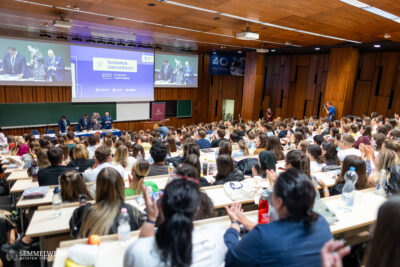Semmelweis University organized its first summer university in 2019 to mark the 250th anniversary of the institution. The event proved to be so successful that the end-of-summer program has become a tradition since then, where participants can attend lectures and round-table discussions mainly on topics that are less frequently dealt with during the academic year within the walls of the medical university.
The international program, launched last year to celebrate the 40th anniversary of Semmelweis University’s international medical training, will run concurrently with the Hungarian lectures, starting one hour later. The agenda, arranged in thematic sections and reflecting the students’ interests, has been put together by the Center of International Training Programs and the Directorate of International Relations, under the guidance of Dr. Alán Alpár, Vice-Rector for International Studies and Dr. Marcel Pop, Director of International Relations, in close cooperation with international student organizations (International Semmelweis Student Association, ISSA and the student association of German-speaking students, DSVS) and the Directorate of Alumni Affairs, to support international students to settle in and make the most of the opportunities offered by the university.
As new feature of the first day, the section called “Fascinating Hungary, unique Budapest” aims to bring the country, the capital and the Hungarian culture and language closer to the students, drawing their attention to the sights, values and beauties worth seeing and experiencing while living in Hungary.
A special section will be dedicated to mental and emotional health, as this topic, including stress management, anxiety, depression, early detection of the latter and the psychological support services offered by the university, as well as the role of peers in early detection, is of particular interest to students. The main speakers of the session will be Dr. Bea Pászthy, Associate Professor at the Department of Pediatrics, Dr. Sloan Kudrinko, Manager of EUniWell’s Mental Health Project, Dr. György Purebl, Director of the Department of Behavioral Sciences and Dr. János Kollár, Associate Professor of the Department of Behavioral Sciences.
The closing block of the first day, “How to become future-proof health professionals”, featuring a keynote by Rector Dr. Béla Merkely, will explore the latest developments and opportunities that contribute to the institution’s ability to provide the world with outstanding, “future-proof” students, i.e. students who are well-equipped to face the challenges of the future with sound theoretical and practical knowledge, enabling them to succeed everywhere and who are committed to continuous development and learning.
The Rector’s keynote will be followed by a roundtable discussion covering a wide array of topics proposed by the students, including curriculum 2.0, practice-oriented education, international mobility, trends and challenges of international higher education, scientific involvement during studies and PhD and much more. Participants Rector Dr. Béla Merkely, Vice-Rector for International Education Dr. Alán Alpár, Director of International Relations Dr. Marcel Pop, Dean of Faculty of Medicine Dr. Miklós Kellermayer, Director of Center for Educational Methodology, Development and Organization Dr. Levente Kiss, President of the Doctoral Council Dr. Zoltán Benyó and President of the Students’ Scientific Association Dr. Attila Szijártó will also answer student questions addressed on the spot.
The second day kicks off with the program entitled “Mix of Curiosities” presented by the Faculties, a section traditionally dedicated to the faculties’ presentations. Among other things, this will offer presentations on prehabilitation, novel diagnostic techniques, sport and rehabilitation, healthcare teamwork, fad diet and 3D printing.
The Science & Innovations – Digitalization & AI in Healthcare section will cover topics ranging from AI in medical imaging, VR in psychiatry to digital health. In the closing Semmelweis Talks, medical futurist Dr. Bertalan Meskó will explore how generative AI will upgrade healthcare.
The detailed program of the 5th Semmelweis Summer University is available here.
Both the Hungarian and the international programs are usually booked out, and this year, the organizers expect a total number of approximately 1800 participants, including 400 English-speaking and 200 German-speaking students, too. The Summer University is accredited as an optional course in the Neptun system, with 1 credit per day. To obtain the credit, you need to have continuous, certified attendance. Attendance will be verified by barcode scanning.
Anita Szepesi, Judit Szabados-Dőtsch
Photo: Attila Kovács – Semmelweis University
Translation: Judit Szabados-Dőtsch
